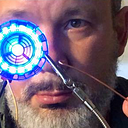A Coding/Engineering Experience for Business Undergraduates
UPDATE: While exercises used in this class are linked below, there are additional YouTube videos on both MakeCode as well as CircuitPython for the CircuitPlayground Express on my YouTube channel: Find this and more at: https://bit.ly/GallaugherYouTube
Our “Digital Technologies: Strategy & Use” core course for (mostly) freshmen business students combines the study of how technology influences competition with some hands-on skill (usually model building in Excel). This year I wanted to give students an experience that combined coding with some basic engineering. The low-cost Circuit Playground Express from Adafruit Industries is ideal. The firm’s founder and lead engineer, Limor “Lady Ada” Fried, is also a great role model for students interested in entrepreneurship (feel free to share this YouTube “Be Inspired” playlist if you find it useful).
There were several goals in integrating the CPX into the course: 1) provide a lab where concepts of fast/cheap computing and its relation to new product and market creation could be more deeply appreciated and explored, 2) provide an introduction to coding and hardware in a way that was approachable and inspiring, 3) introduce more students (especially women & students of color) to possibilities in tech, and 4) provide a “gateway drug” for students hooked on this experience to follow up with additional courses in python, Swift/iOS app development, and more.
Students followed a “flipped class” experience, watching three videos, introducing the CPX, offering an intro to programming using Microsoft’s block-based MakeCode (which also generates JavaScript), and a video completing an “alert necklace” project that can flash a fashion animation, or a “friends, come save me from this bad conversation” light. Students completed work on the device on their own after watching all three intro videos.
I’ve prepared a Google Drive for faculty interested in adapting the exercises for their own courses. In class we had three hands-on experiences planned: In the first — “The Goblet of Glory” students used the accelerometer, animation, and sound capabilities of the CPX to detect when a “goblet” (plastic drinkware taped base-to-base, with a lid taped to the bottom to hold a CPX & battery) was raised in toast. Three songs were prepared (Game of Thrones theme, Harry Potter theme, and the Boston College fight song “For Boston”), which enabled students to quickly focus on coding the sensor work that integrated the provided music. When students completed the task, they came to the front of the room to receive “The Nectar of Knowledge” — sparkling cider (non-alcoholic, of course), in a toast to their newly acquired skills.
The second exercise — “Snack Signal”, used the infrared capabilities of the CPX. Students worked in pairs, sending a signal indicating which snack they’d like a classmate to get for them from the stash at the front of the room. Red meant “get me Skittles”, while blue meant “get me M&Ms”. IR is a line-of-sight technology, so issues of signal/sensor positioning were discovered and dealt with.
We didn’t have enough time for the third exercise planned: “Citrus School Spirit”. In this exercise, students would be given an alligator clip and a lime, along with the notes for the school fight song. Teams of 6 (there are six notes in the first part of the fight song) would work together to each use their lime to send a signal to play one of the needed notes when touched.
Students did all receive a loaner strip of 30 full-color LED Neopixel lights, and additional demonstrations were provided to show students how they could use lights for animation, sound/music response, and more.
We’ll have additional videos introducing CircuitPython, and another hands-on exercise course once python skills are acquired. The final week of class will include project demonstrations, with each student discussing their original work. Students have been pointed to online resources, I’ve created a few fun examples: a “Baby Groot” with live plant that will “talk” when the leaves are patted, a “super-tie” that animates a regular necktie with a light strip embedded in it, and a snow globe with 3D printed University symbol (eagle), that plays the fight song when shaken. Some of my teaching assistants are also working on additional projects, including music-responsive lights, and an instrument-playing robot. Be sure to check out “Tech with Estevan”, by the brilliant Estevan Feliz (a two-time Hackathon winner as a Freshman, and also one of my top-notch TAs). I’m new to CPX, and appreciate your feedback! I’m active on Twitter @gallaugher, and my website (which could use an update) is http://gallaugher.com.
Curious about additional content? The award-winning text “Information Systems: A Manager’s Guide to Harnessing Technology” is updated each year, is used by over 300 programs, and is only $29.95 for an online version. “Learn to Program Using Swift for iOS Development” is a video-centric course ideal for flipped-class or online learning. Over 100 videos take students with no assumed programming experience through a “full stack” experience that ends with a “Yelp-like” restaurant review app that uses Google log-in, shared data via Google Cloud Firestore and Firebase Storage, photos, maps, and more. The entire product is just $25 online.
